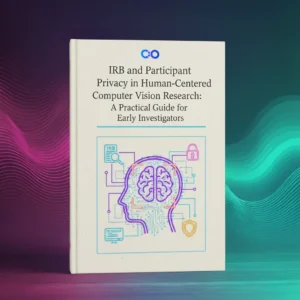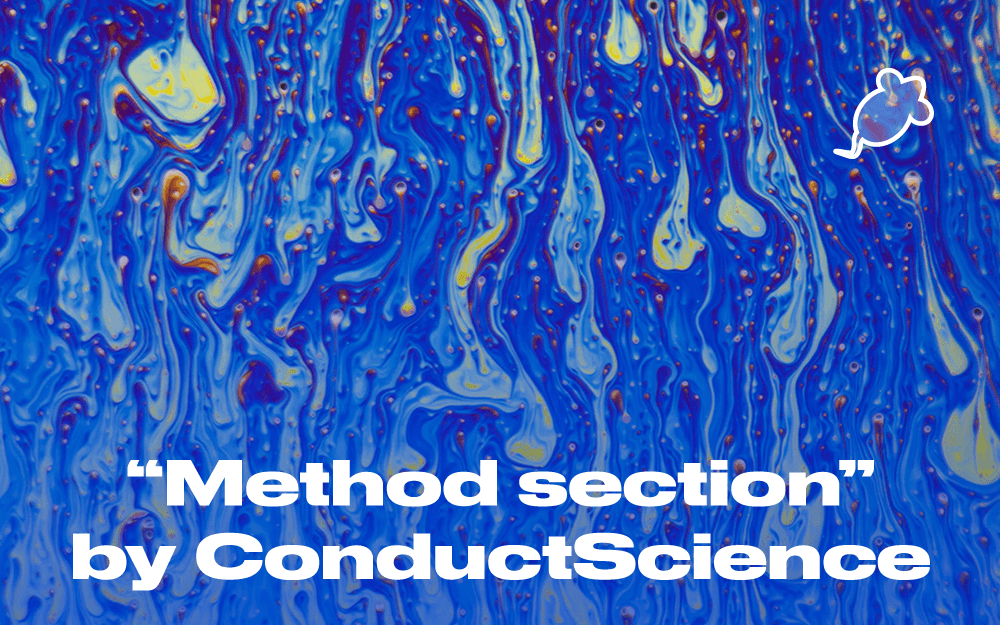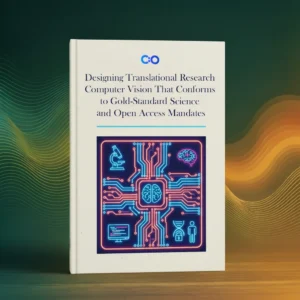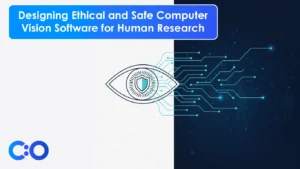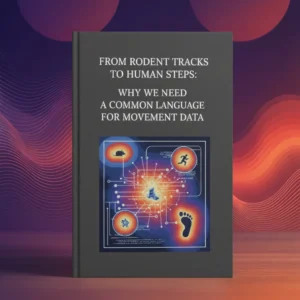Tom: Hello Ladies and gentlemen and welcome. I am your host Tom Jenks and today we will be exploring science that you can get involved with right now, whether you’re into galaxies or wildlife conservation. This is the method section.
Tom: that’s right. Hello Ladies and gentlemen and welcome to the first episode of the method section. So before we jump into the episode and what we’re going to be talking about today, I just want to cover why we are doing this series and why we are doing it separately to the main podcast, the conduct science podcast. So what is this series about? Well, this series is just going to be a podcast that’s going to be no longer than 15/20 minutes long. It’s going to be a lot shorter format than the main podcast and it’s just going to be me. So unfortunately you’re stuck with me monologuing for 15 to 20 minutes. This podcast is going to cover various different topics from, you know, how to get into science, how to get involved with science that you wouldn’t otherwise be readily available to get involved with. Methodologies of controversial or really famous experiments and why or why they weren’t successful. Some good examples of this are obviously the Stanford prison experiment, very controversial in its time. And another example would be the experiment that led to the whole Anti-Vax movement and that whole shambles. But those are for other episodes. So for today we are talking about science that you can get involved with right now. Now this applies to everyone whether you are a current scientist, whether you are an aspiring scientist, whether you just enjoy reading about science or conducting your own little experiments at home. These are stuff that you can get involved with today as you’re listening to this.
Tom: So this falls into the realm of citizen science and citizen science is where data is either collected or analyzed by people of the general public. Normally in collaboration with scientists and in the scientific world, it is not always looked favorably upon as being the best method. But that kind of makes sense because I’ll explain why that doesn’t work in some situations. So say for example, we are down at the beach and we are measuring zonation from the shore line up to the cliffs. Now if members of the general public turn up, while their intentions are very good, they’re not all going to have the same level of training and so people collecting data using slightly different methods and incorrectly and inconsistently leads to very unreliable data. Then for example, if you have say a scientist, whether they’re high or low trained, even if they are doing it wrong, but it is only them collecting the data, at least it would be done consistently wrong and the hope would be that the data points are consistently out by a certain factor and it at least it would produce reliable if not accurate data. Then you come to the problem of subjective decisions, so not everything is done with exact measurements. Sometimes you have a quadraton the ground and you have to estimate, you know, how much percentage cover of that quadrat is filled by seaweed or moss. One person who’s maybe had a bit more experience than someone else might say, oh that’s 60% or 65% whereas another person who has a bit less experience and is a bit less confident might say it’s you know, 80% or 50% and they’ll stick to rounder numbers rather than going to the fives. So again, having someone consistently make the same types of judgment calls when it comes to this is far more beneficial than lots of different people.
Tom: That being said, there are lots of situations where citizen science is actually better and has been shown to have remarkable results and discoveries as we will come on to later. So some situations where this can be good and why this is good is having lots of volunteers allows you as a scientist to have people sort through lots of data. It saves time that the scientist doesn’t have to be doing it maybe by themselves if they are working on other parts of the project. And also the volunteers that are willing to do this work are interested. They are choosing to do it and they want to do a good job. So compared to someone whose job it is to do this, they might get bored, they might get a bit sloppy, whereas people are doing this in their spare time as a hobby. Maybe they are putting the extra effort into make sure that they do a good job. Sometimes that counts for a lot. Now some people might say, oh, but we have AI (artificial intelligence) that can comb through lots of data and yes, whilst that’s true, AI cannot always make the best decisions when it comes to, as I said earlier, subjective decisions the human mind will trump the AI mind every single time. And this is why it’s important to still be using humans to sort through data. There are a couple examples I’ll come onto later that this is specifically helpful for, and I think you’ll see why in those examples.
Tom: So if you would like to get involved, there are a number of different sites and thousands of different projects that you can get involved with. And the good thing about these projects is that there is a very little amount or zero training that you need to do to be able to help out with analyzing the data. Now that’s important because it means a lot of people can do it. You’re not restricted by the experience you have and also it makes the data sorting highly efficient. If anyone can turn up and do a pretty good job, then you know that the sorting is going to be quite a high efficiency to get through the data that you have quickly. Now there is one website that I would recommend checking out if this is the kind of stuff you would like to do and that is zooniverse.org you can find a the link in both the description to the podcast and if you are listening on our website you will find it down below. As I said, there are many different projects and many different project areas. I’m just going to run through a few of the examples here in case there’s any that spark your interest.
Tom: So if you’re interested in biology and climate and nature, some really interesting projects that they’ve got going on at the moment. Um, a lot of nature as and game reserves in Africa and other places in the world use camera traps a lot to help identify either individuals or population numbers or where their animals are going and especially because lots of them are employing conservation techniques, they want to know how well their conservation techniques are working. So you can study footage of camera traps that have been set off and you can tell the website or the database whether in that piece of footage there is a Zebra or big cats or other animals that the database wants to be tracking. Or you can say, oh no, it was a bird. It was a rabbit. Something that you don’t, that you’re not looking for. The scientists then do not have to include that piece of footage in their database. If maybe history or languages are more your area of interest. Then there are two fascinating projects going on at zooniverse at the moment. One of them is transcribing and sorting through American civil war records to help them identify where and when African American soldiers were fighting in the American civil war. And the other one is linked to languages and Shakespeare. And what they want people to do is transcribe handwritten texts from Shakespeare’s contemporaries to help understand his life and times better. Now, to me that sounds incredibly interesting and something I might actually do after this cause I mean who wouldn’t want to have a chance and say that they’ve had the chance to transcribe some of Shakespeare’s contemporary texts.
Tom: Now there is one project I would specifically like to speak to you today and that is in the realm of space. Now the reason why I want to talk to you about this one is because firstly it’s something that I took part in. And secondly, it’s something that had a short amount of training. So I can explain to you how really it took literally five minutes to complete the training. And then each analysis was, you know, one or two minutes even less sometimes. And the great thing about citizen science online sorting through databases is you have no obligation at all. For example, if I’m going down to the university or the local wildlife trust, and I said to them, Hey, I’m going to help you with some research and wildlife spotting, and they’re like, okay, you have to be here every Saturday at 7:00 AM to count the birds on the lake. Okay, whilst you’re helping the local environment, and that’s great. Sometimes you don’t always want to be up on a Saturday down the lake at 7:00 AM counting birds. However, with this online citizen science, the great thing is you have absolutely no obligation. You can come on, you can do a couple of bits of data, whichever project you’re doing, look at a couple of camera traps, transcribe a couple of Shakespeare’s texts or contemporaries texts, sorry. And then stop. You can do it once, you can do it a hundred times. So the freedom really is there with this.
Tom: So the one that I want to speak to you about today is called exoplanet explorers. As I said, this is something that I took part in and as the name suggest it is the search for exoplanets. For those of you who don’t know what exoplanets are, these are planets that all bit stars outside of our solar system and very important questions to ask whenever you are taking part in research is why and how they are doing it. So I asked that, why are they searching for exoplanets? How are they doing it? Well, the reason why is they want to be able to study the planets, the histories, their lives, and the evolution of planets so we can just get a better understanding of how solar systems and planets form. This was part of the K2 mission that lasted from 2014 to 2018 and it used data from the Kepler telescope in that four year period, they observed just under 290,000 stars. Now, if you can imagine how much data, 290,000 stars over a four year period, accrues, then you can understand why citizen science, especially in this is incredibly useful. And I’ll come onto that in just a second. So not only are they trying to explore why the planets are there, how the planets are there, the history of the planets, but on a more abstract point of view, if ever far in the future we are searching for habitable planets. This is one of the best ways to do it. And it would start here because we are looking for planets and we are very interested in planets in the goldilocks zone. And for those of you who haven’t heard of that, that is planets that reside not too close, but not too far away from their star, where liquid water could be present and all we know about life so far, especially because we only know life on this planet is that water is the key ingredient to life. So it makes sense to search for planets which are in this zone where they could harbor water and thus potentially life. More than that. If we know they’ve got water on it. As I was just saying, we know that it is a suitable temperature for us. If we were to ever go.
Tom: Now, how do you tell if there’s an exoplanet? Because unfortunately there are some stars that don’t have planets. That’s a lonely star and there are some solar system like ours. I have lots of planets. So the reason that the way you tell that there is a planet orbiting a star is you point the telescope at the star and measure the light coming from that. And if there is an exoplanet going round it, it will cause the amount of light received to dim. Imagine a solar eclipse. You’re staring at the sun, the moon moves in front of the sun and blocks out all the light. Now with an exoplanet and stars so far away, it obviously isn’t that dramatic. However, the principle is kind of the same. So in the training you log on to the exoplanet explorers website and you’re presented with a graph and they tell you how to read the graph, how to read the light intensity, how to read dips in the light intensity, and they tell you to look for dips that happen at a periodic pace because just like planets in this solar system, they orbit around the sun, the central star in a very periodic fashion, like we orbit our sun in 365 days, so every 365 days from a specific point in space, we would cause the dimming, and it’s the same with exoplanets. Now there can be other sources of dimming like asteroids and space debris, but you would notice that these are aren’t likely to be exoplanets due to the fact that they are not periodic. They are very random and sporadic.
New Speaker: Now, unfortunately, the exoplanet explorers program is no longer functioning this due to two factors. Firstly, the Kepler Telescope last year was decommissioned because it ran out of fuel. I mean it was planned, but you know, they knew it was coming to the end of his life and and they haven’t put any of the other space telescopes onto the same project yet. And then the second reason why exoplanet explorers is no longer functioning is because all of the volunteers have gone through all of the data and there is none left to do unfortunately. However, this one is very important to talk about, just to show you the process, how easy it can be. Even for someone who has no idea about astronomy. I’m a marine biologist. I do not deal with space. I have not learned much about space, however I find it very interesting. So I wanted to help. The other reason why this is very important to talk about is because of the incredible discoveries that came about purely because of the fact that citizen science was being used. I’m going to talk about two of these discoveries today because that’s all I have time for, to be honest. As I said, I wanted this to be a shorter format.
Tom: So the first discovery is of the K2-128 system. First thing you’ll learn about physicists is that they have no imagination for naming systems and planets. So I think we should start a petition to try and rename some of these things that they have discovered. Hit us up on Twitter @ConductScience. So K2-128 is a five planet system and they discovered this three days after they released their citizen science program, just three days, they discovered a whole new star with five exoplanets orbiting it. Now, not only is this exciting just for the fact that they managed to find this, but it’s also useful in helping astronomers understand just how planets formed in a solar system. So yes, we have the theory that big clouds of dust form the central star forms and then planets form around that. But now we can apply that theory to other systems and see if it checks out.
Tom: And then the other discovery I really want to talk about is get ready for this absolute belter of a name. Exoplanet K2-288Bb. That sounds like C3PO’s second cousin. Now what’s remarkable about this planet now, what’s remarkable about this planet is that it wouldn’t have been found without citizen science. So lots of the volunteers pinged this specific graph as a potential exoplanet. The scientists then took interest after that, pointed the Kepler Telescope at this star a to find the exoplanet and they did just that and they managed to confirm. Now this planet was there. Well, they have discovered hundreds if not thousands of exoplanets. So why is this one special in particular at the moment, scientists don’t know whether this is a rocky planet like earth or a gas rich planet like Neptune, but it is in the goldilocks zone, which means it could have water, it could have life, whether that is microbial or more. But microbial life is still life and in the distant future, as I was mentioning earlier, we know it might be a suitable temperature for us. It also resides in the Fulton Gap. Now the Fulton Gap is used to describe planets that are 1.5-2 times the size of Earth. The reason why this is important is because planets this size are incredibly uncommon and they’re very good to help scientists study planetary evolution. I’m not going to go into why we think they are uncommon because we are coming up to the 20 minute mark now and I don’t have time. However, incredibly interesting. I wanted to show you a citizen science program that has really had profound effects in the field of science that it is stunning. Now, as I said at the beginning of the show, whether you are already a scientist, whether you are an aspiring scientist, whether you’re at university, whether you just do this for a hobby and you have no connection to science whatsoever, this is something that you can do right now and if you’re interested, I would encourage you to do so. It really is interesting whether you want to do it because you’re interested or you simply want to be able to boast that you are part of the team that discovered exoplanet K2-288Bb. However, we really need to work on that renaming. Maybe that’s a reason to get into it yourself. Have the chance to name a planet something other than K2-288Bb.
New Speaker: So as I said, I wanted to keep this a lot shorter than the other podcasts, the main podcast. So that is everything I have got to say on this topic. I think I’ve covered everything. Now this podcast will be coming out every single Friday, so keep a lookout for that. If this is the kind of thing that you’re more interested in. Next week I am going to be talking about volunteer science, whether it’s good or bad, whether you can get into it and I actually have an upcoming interview with someone around this topic which is going to be incredibly interesting and I cannot wait bring that to you guys, but that will come out once again in tandem with the main podcast. If you want to check out all the latest goings on, you can head to conduct science.com you can check us out on Facebook and Twitter by searching for @ConductScience. Now remember, if you have any questions, you can use the #AskCondcutScience. And if you want to suggest a topic or a guest both for the main podcast or for this one, please get in contact with us and we will be more than happy to either answer your questions or maybe even get to some of those topics. So yeah, as I said, next week I’m going to be covering volunteer programs. That is it from me this week, and I shall see you guys… A-next time.
